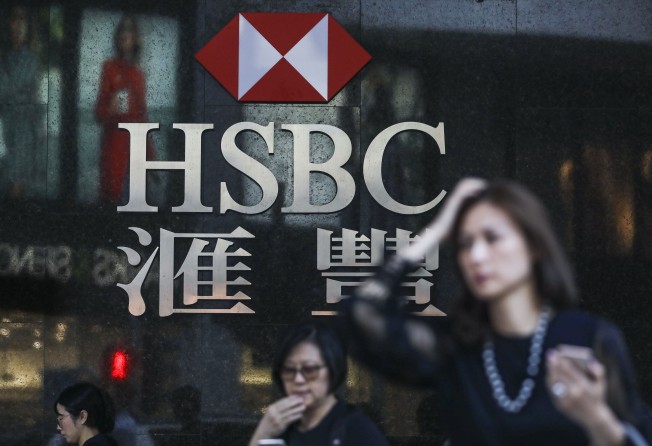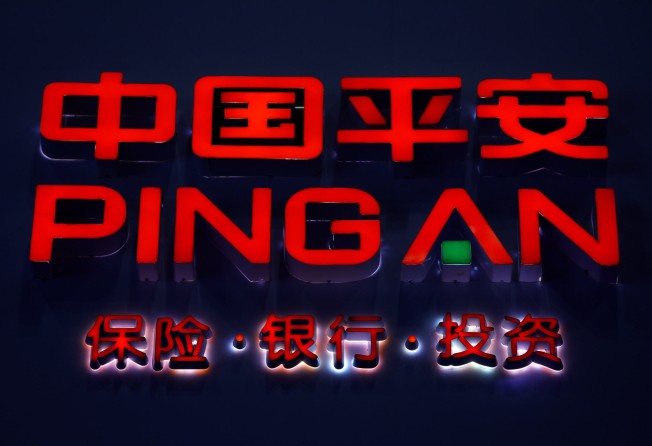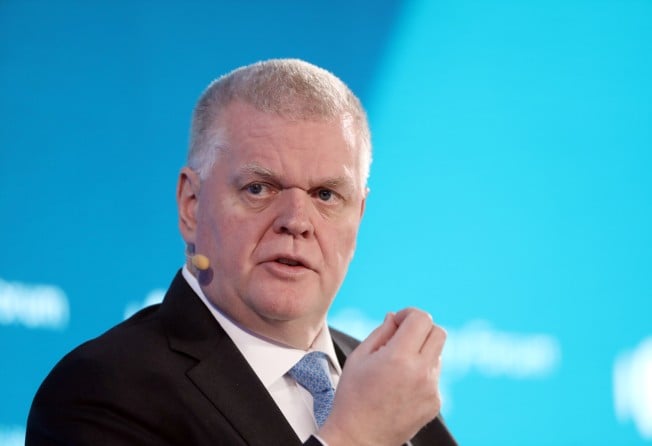
05:25
HSBC’s break-up dilemma: why bank’s largest shareholder is pushing for change

HSBC’s biggest shareholder Ping An Insurance Group believes the bank’s executives have overstated the challenges and downside risks of a spin-off of its Asia business in public statements about the proposal, according to a person familiar with the insurer’s thinking.
Ping An, the largest insurer in China, claims an additional US$25 billion to US$35 billion in market value could be created by separating HSBC’s Asian operations from its businesses in the West and free up as much as US$8 billion in capital that the bank is required to hold as a so-called global systemically important bank, the person said.
The insurer also believes HSBC could save on headquarters and information technology (IT) costs by separating the businesses. HSBC spent about US$6 billion on its technology globally last year.
In an informal meeting with small shareholders in Hong Kong last week, HSBC’s top executives laid out 14 potential downsides and challenges of spinning off the business, including losing revenue from its international network and higher costs associated with creating a separate IT system for the carved-out business.
Ping An has not been convinced by arguments presented by HSBC CEO Noel Quinn and chairman Mark Tucker and believes the bank has failed to carry out an in-depth analysis of the benefits and value of spinning off the Asia business, the person said.
Ping An’s spokesman declined to comment, and the insurer’s executives were not available to comment. It was not clear how Ping An planned to communicate its point-by-point rebuttal officially to other shareholders.
HSBC declined to comment on Thursday.
Any spin-off of HSBC’s Asia business would require three to five years, “cost a significant amount of money to execute,” which would “then have a negative impact on the market valuation of the business in Asia and on the dividend potential in Hong Kong,” Quinn said at a meeting of about 1,000 small shareholders on August 2.
The day before, HSBC, the biggest of Hong Kong’s three currency-issuing banks, reported an unexpected 61 per cent jump in net profit to US$5.49 billion in the second quarter, beating the US$2.7 billion expected by analysts.
HSBC’s performance was driven in the second quarter by the uptick in interest rates globally, shielding its underperformance and radical change is urgently needed, the person familiar with Ping An’s thinking, said.
The bank’s business model in Asia is inefficient and struggles to compete with its Asian peers, the person said, noting the unit’s cost-to-income ratio was 59 per cent, as much as 25 percentage points higher than its peers.
However, HSBC’s top executives argued earlier this month that the better-than-expected results pointed to the strength of its franchise and that it was now better positioned to take advantage of higher interest rates following changes made since Quinn took over as CEO in August 2019.

“It has been our judgment that alternative structural options will not deliver increased value for shareholders, [but] would rather have a material, negative impact on value,” Quinn said during the bank’s interim results on August 1. “Our current strategy is the fastest and safest way to get to higher returns and dividends we all want to see.”
The 157-year-old bank, which traces its roots to Hong Kong and Shanghai, is based in London, but books most of its revenue in Asia.
HSBC executives have argued that much of its revenue in Asia comes from its international network and originates from clients outside the region and a spin-off would destroy the unique proposition the bank offers multinational clients.
One minority shareholder at last week’s meeting said an Asian spin-off would turn the lender into a regional bank, which “would be no different from other mainland [Chinese] banks in the city.”

Ping An, however, has countered that this could be simply solved by allowing HSBC to continue to act as major shareholder of the Asia unit after the spin off, according to the person familiar with the insurer’s thinking.
The insurer also believes HSBC executives have overstated the risk of losing roughly US$4.5 billion in cross-border wholesale banking revenues as a result of the spin-off, the person said.
The Asian unit also could continue to share an IT system with the remainder of HSBC under a shared services contract, rather than build a new IT system from scratch, the person said.
HSBC also has argued that the Asian business would need to issue its own debt in a costly process to meet regulatory capital requirements as part of any restructuring. However, Ping An believes that the added costs can be avoided or significantly reduced in part if the Asian business is granted a transition waiver by regulators.
Ping An first went public with its dissatisfaction and called for the bank to be broken up in late April. However, the troubles between HSBC and its largest shareholder can be traced back to 2020 when the bank agreed to suspend its dividend at the request of its primary regulator in Britain.
So far, Ping An’s campaign has resonated with vocal parts of Hong Kong’s retail shareholder base who continue to seethe over the dividend cancellation.
However, no major shareholder has publicly supported the campaign since Ping An aired its grievances and many analysts have expressed scepticism about the potential value that could be unlocked, given the likely complexity and time needed to split one of the world’s largest banks.
Its share price also has remained stuck in neutral since the campaign began, declining 4.5 per cent since late April to close at HK$52.50 on Thursday in Hong Kong.